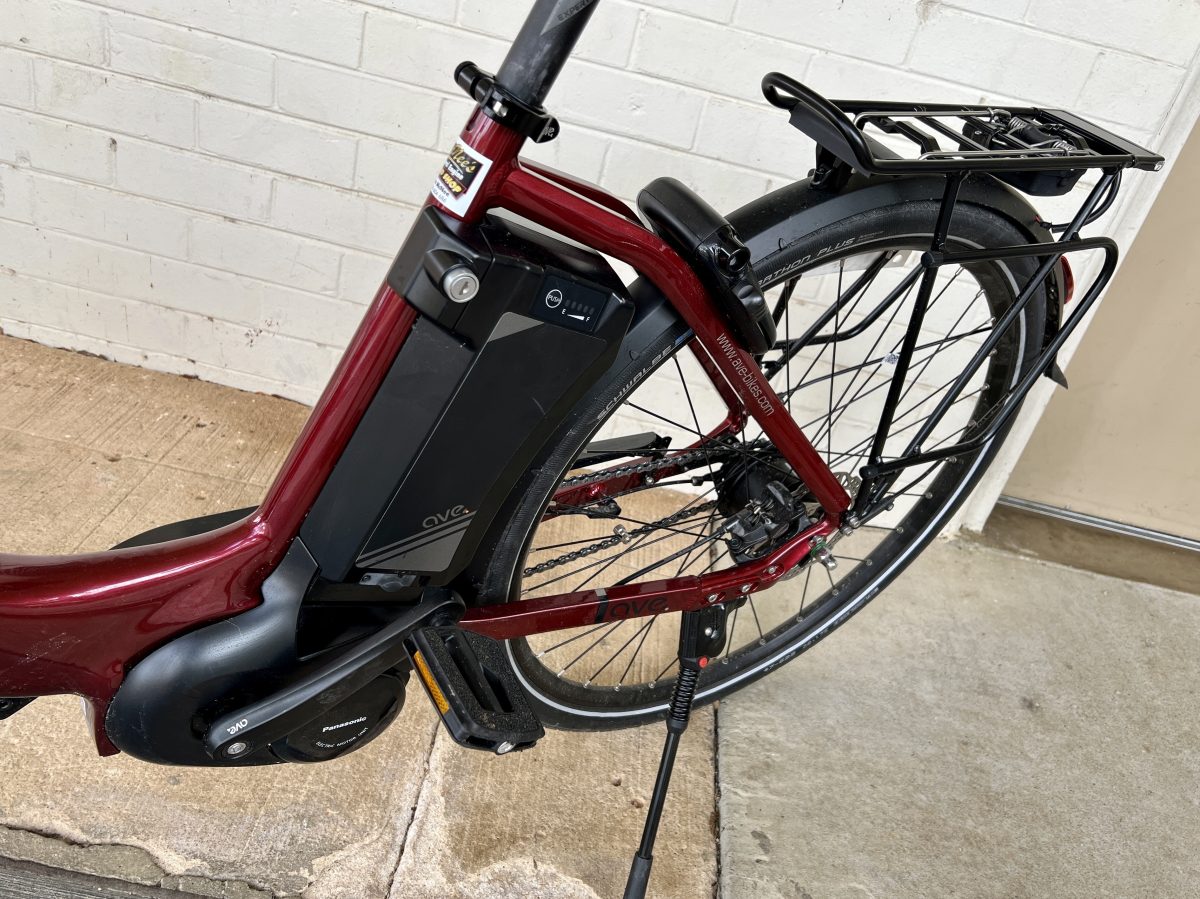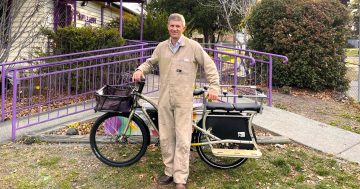
Paula Mance, executive director for SEE-Change, with some of the electric bikes available on loan. Photo: James Coleman.
More households are choosing to ditch the car and use an e-bike to get to school or work in an effort to make money go further, according to the Canberra Electric Bike Library.
“Interest in them is definitely rising, because obviously you don’t have to spend money on fuel,” project officer Gabrielle Meiklejohn says.
“And you can get outdoors, get active, and see Canberra in a new way.”
Not-for-profit sustainability organisation SEE-Change has operated the Canberra Electric Bike Library for more than three years (with the support of the ACT Government), providing e-bike loans of up to two weeks.
The cost is a $35 insurance fee for individuals and $50 for families, payable to Pedal Power ACT.
Over the past 12 months, more than 270 Canberrans have taken out e-bike loans, to the point it’s rare to find spares lying around the office in the Downer Community Hall.
The library is capitalising on this growing interest by expanding its reach north and south through regular ‘come-and-try’ events, often attracting more than 70 people despite next to no advertising budget.
The next of these, at Impact Church in Monash, Tuggeranong, on Sunday 30 July will offer south-siders the chance to take a mix of electrically assisted commuter and cargo bikes on short test rides.
“A lot of our main users are people interested in replacing the car for the work commute,” Gabrielle says.
“Compared with a standard pushbike, an e-bike also makes active travel more accessible for those who might not want all the sweat and necessity to shower and change of the pushbike experience.”
These models stick with fairly conventional names like ‘Metro’ and ‘E-Commuter’, but those with extra cargo space or seating are called things like ‘Yuba Boda Boda’, ‘Krankie’ and ‘Sweet Curry’.
Gabrielle says the latter are also proving increasingly popular for young families, “as they can do the school run with the kids on the back, and ride into work all in one trip”.
Gabrielle says in about 30 per cent of cases, loaners become buyers.
“It’s always fantastic seeing the smile on someone’s face as soon as they’ve ridden an e-bike for the first time, and hearing how surprised they are at how easy it is,” she says.
Standard e-bikes range in price from $1500 for the most basic models to “as high as you like”, while those with extra seats or cargo space normally start around the $4000 to $5000 mark.
“I think that’s where the library really does help out,” Gabrielle says.
“It’s a low-cost two-week loan so people can really see how an e-bike might fit into their lives. Or, it if doesn’t, that saves them buying one and it just sitting in the shed accumulating dust.”

The battery pack can be plugged into a standard power point to charge. Photo: James Coleman.
The come-and-try day on Sunday is the second so far this year for Tuggeranong, but for the first time, it’s also joined by the Tuggeranong Repair Cafe, another of SEE-Change’s initiatives.
On the last Sunday of every month, people are invited to bring along broken items, clothes and appliances so they can be fixed and saved from landfill.
The cafe has outgrown its previous premises at the Tuggeranong Community Centre and is moving to the Impact Church, for similar reasons to e-bikes.
“It’s been growing over time and becoming more popular as it becomes more well-known,” Gabrielle says.
The E-Bike Come and Try event will be held at Impact Church, 200 Clive Steele Avenue, Monash, from 1 pm to 4 pm on Sunday 30 July. Helmets are available, and there is free parking on site.













